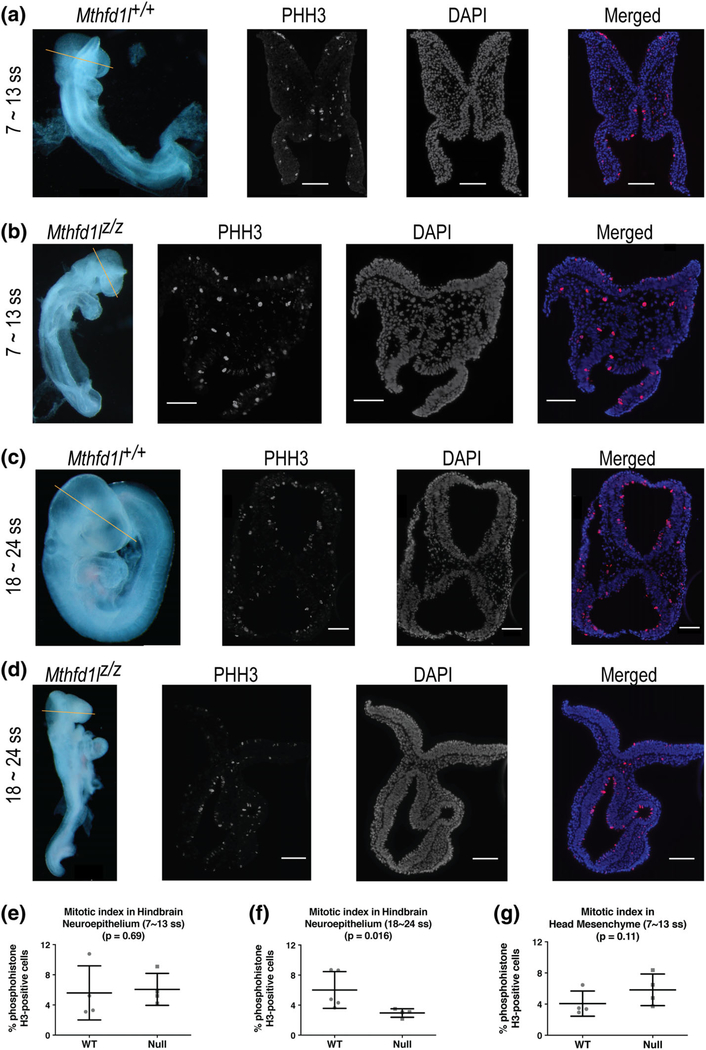FIGURE 6.
Deletion of Mthfd1l causes reduced proliferation in neuroepithelium at 18–24 somite stages, at the time of completion of neural tube closure. Straight line in whole embryos indicates the level of sections. Sections were stained for phosphohistone H3 (PHH3) and DAPI for nuclei. In the merged images, PHH3 staining is red and DAPI staining is blue. (a, c) Representative sections from Mthfd1l+/+ (wild-type) embryo at 7–13 (a) or 18–24 somite stages (c). (b, d) Representative sections from Mthfd1lz/z (nullizygous) embryo at 7–13 (b) or 18–24 somite stages (d). Scale bars indicate 100 microns. (e, f) The mitotic index (% phosphohistone H3-positive cells) in neuroepithelium was quantified at the developing hindbrain. (g) The mitotic index was quantified in head mesenchyme at 7–13 somite stages. In (e–g), n = four embryos in each genotype with values from three to four sections averaged per embryo. Error bars represent standard deviation and p value was calculated by Mann–Whitney U test

